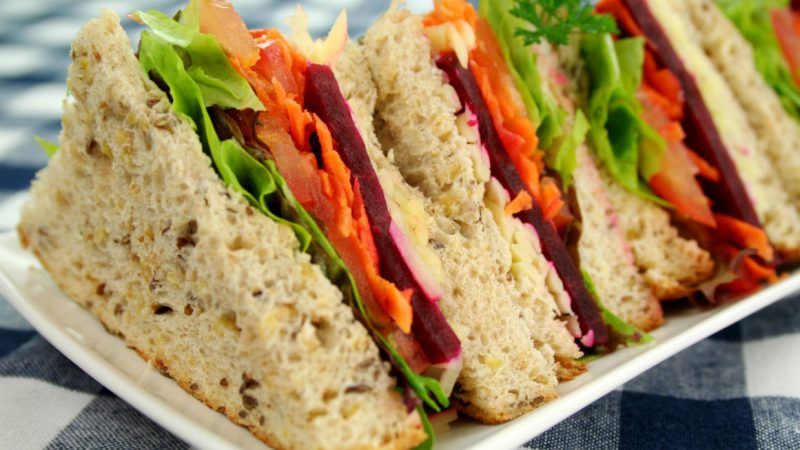Georgia's Department of Public Health Is Going After a Charity That Feeds Hungry Kids for Using 'Uncertified' Kitchens
MUST Ministries has provided millions of children with free lunch sandwiches, but an old rule could change their program.

A Georgia nonprofit that has served food to low-income children during summer school breaks for the last 24 years may be unable to help kids this summer due to pressure from the George Department of Public Health.
MUST Ministries runs a summer lunch program to help children who qualify for subsidized and free lunches during the school year, but are at risk of going unfed when school is out of session. The group says it provided 7,600 children with 260,000 lunches last year, thanks to churches, businesses, and families who volunteer their time and home kitchens to make the sandwiches that MUST Ministries distributes. This summer, however, the group was informed by the Department of Public Health that it cannot distribute food prepared in uncertified kitchens.
MUST Ministries President and CEO Dr. Dwight Reighard tells Reason has been in contact with officials over the rule, and that complying with state regulations on food preparation will financially hobble his organization.
"This is the 24th year and we've served over 2.5 million sandwiches," Reighard says. "Never had a complaint."
The problem, according to the Georgia Department of Health, is that MUST Ministry's sandwiches are prepared in the homes of volunteers. While MUST Ministries instructs volunteers to wear gloves and hairnets and to lay down wax paper for food prep, the department says this is not enough.
"The Georgia Department of Public Health's goal is to work with MUST Ministries so they can continue to provide food/sandwiches to children during the summer, and to other organizations that serve the homeless population," Nancy Nydam, DPH's director of communications, wrote in an email. "If food is made in homes, which DPH does not regulate, there are no inspections or checks to ensure safe preparation and handling, and what is contained in the food."
DPH says that MUST Ministries can obtain permits for the various volunteer kitchens, make its sandwiches on site, distribute packaged meals from a food service company, or cater the meals. If MUST Ministries wanted to use its own permitted kitchen, the department would require that it be overseen by an employee or volunteer with a Certified Food Safety Manager certificate. But the group cannot continue doing what it's always done, regardless of how many kids stand to benefit.
Reighard says that the department has not clearly defined to him what a "certified kitchen" is, but that MUST Ministries has its own kitchen and, with time to plan, could get the church's facilities certified in time for next year's program.
But the 2019 summer lunch program has already begun and Reighard estimates that it will cost $250,000 to replace old sandwiches and store new ones. Even without new financial obligations imposed by the health department, MUST needs an additional $75,000 in donations to operate for the remainder of the season.
"It's not like we're doing this every week. We're trying to do it during a critical time period that teachers ask us to help cover," Reighard said.
Reighard says he's been approached by Republicans, Democrats, and Libertarians who stated a willingness to try to pass legislation to exclude charity feeding programs from "these types of barriers."
Reighard, who is also a pastor, believes that the government should allow good Samaritans to help their communities.
Feeding America, a nonprofit network of food banks, estimates that of the 22 million children who qualify for free and reduced lunch while in school, less than 4 million students benefit from the USDA Summer Food Service Program. That leaves some 18 million kids to navigate food scarcity during the summer.
"I don't think the government's supposed to be the one that's out there doing all the feeding and trying to take care of people," Reighard says. "I just hate to see people demotivated because you've just got layers of bureaucracy that say that you can't take something that's on your heart and actually do it. That would mean that if you decided you wanted to make 15 or 20 sandwiches and you wanted to drive down to a place where you knew that there were some homeless people hand them out, you'd be in violation."
The group has now started a "Save Our Sandwiches" campaign.
Related link: Here are just six ways the government went after good works last year.


Show Comments (21)